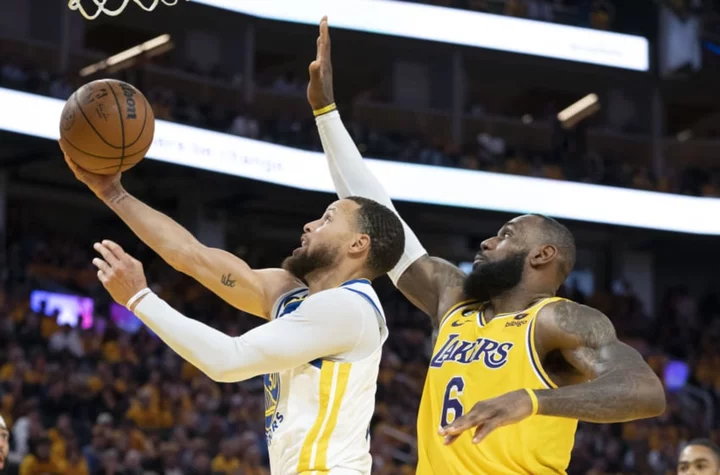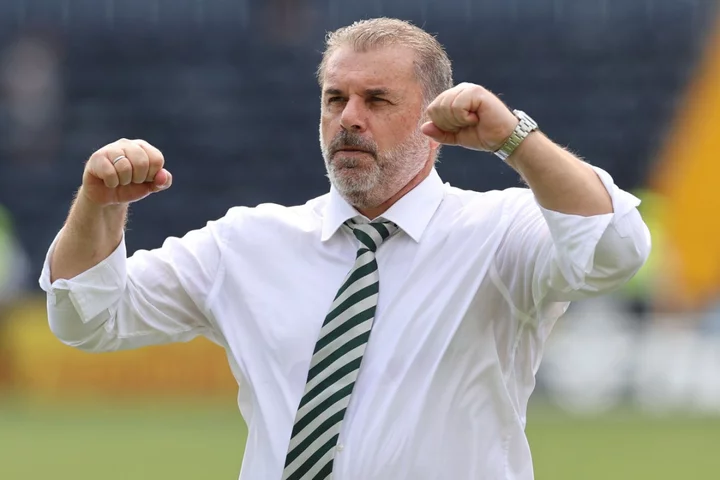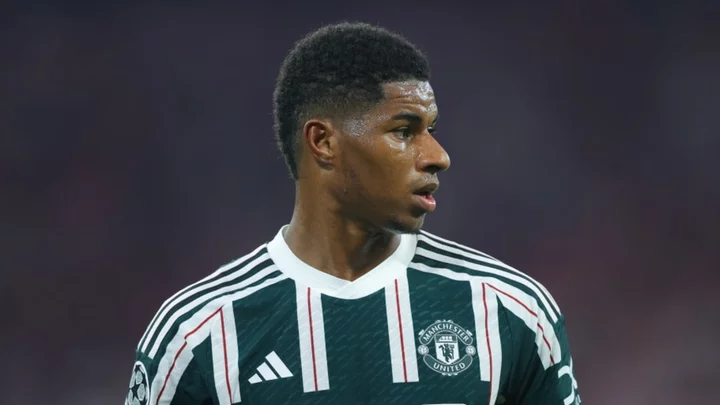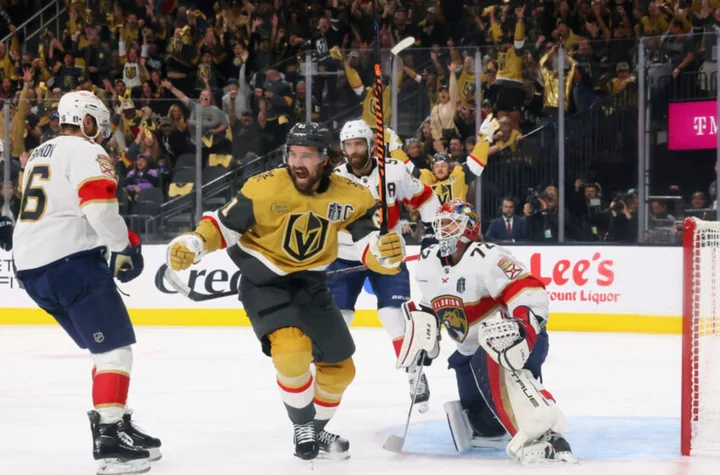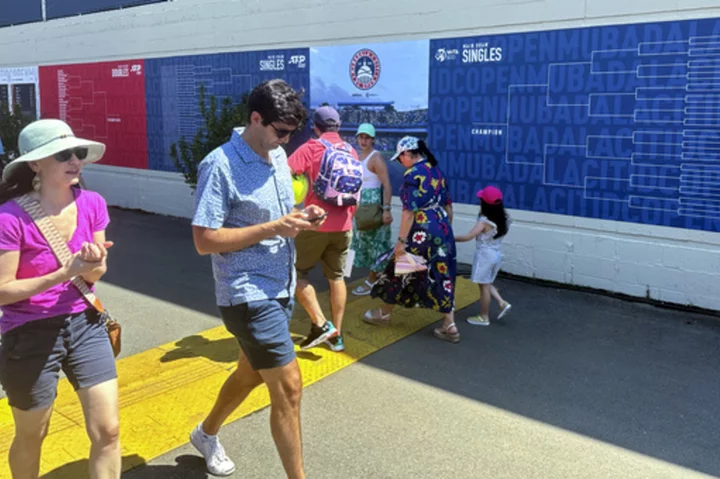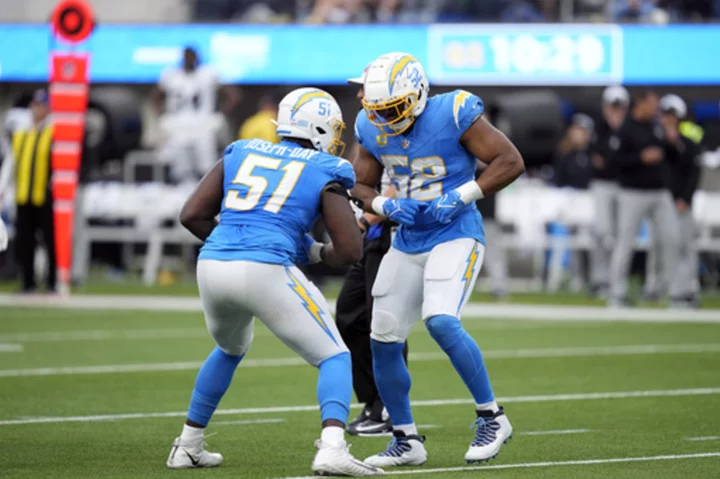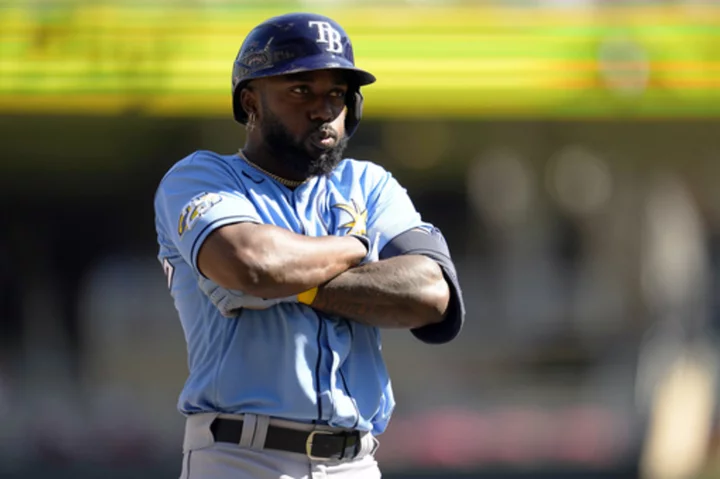The Denver Nuggets may be the defending champion and the Boston Celtics might be the preseason Vegas favorite for the 2023-24 season but the Pacific Division is STRONG. All five teams — the Clippers, Warriors, Lakers, Kings and Suns are legitimate contenders. Convert Vegas odds into implied probabilities and they're projecting a roughly 35 percent chance of one of the Pacific teams winning it all.
The Lakers and Suns may be getting most of the preseason headlines and attention but the Warriors have everything they need to win a second title in three years and their fifth in the past decade.
They have their core, have smoothed last season's friction from Draymond Green's unresolved contract status and his beef with Jordan Poole. They added Chris Paul, and several other bits of key depth. And, if you line them up against each of their competitors in the Pacific, you can find at least one specific and potentially decisive advantage.
1 advantage the Warriors have over the Clippers: Health
The Warriors have had plenty of injury woes over the past few years. Steph Curry missed essentially all of the 2019-20 season. Ditto for Klay Thompson, and the 2020-21 season as well. Between them, they missed 39 games last season and Draymond Green missed another nine. But those absences pale in comparison to what the Clippers have dealt with.
In the four seasons since the Clippers acquired Kawhi Leonard and Paul George, their two stars have missed a combined 266 games. Across the regular season and playoffs, they've played just 3,661 minutes together. The Clippers have been exceptionally good when both players are healthy, a two-way force that absolutely looks the part of a contender. They just haven't had them on the court enough to turn that into a deep playoff run.
On paper, the Clippers present a unique challenge for the Warriors with their two-way depth and star power. In practicality, the Warriors can probably count on rarely having to face them at full strength.
1 advantage the Warriors have over the Kings: Shutdown defense
The Warriors roughed up the Kings during the regular season last year, taking three of their four matchups by a combined 30 points. They also knocked the Kings out of the playoffs, although Sacramento took them to seven games and the series was much closer than their regular season matchups would have indicated.
The difference for the Warriors was their defense, which held the Kings and their league-best offense nearly 10 points per 100 possessions below their season average. They disrupted the elbow-hub, dribble-handoff continuity of Domantas Sabonis and De'Aaron Fox and did enough to keep them off their rhythm.
Giving Sabonis space took away passing lanes, both to him and from him, clogging the lane to shut down their wheeling chaos toward the basket. There were drive-and-kick opportunities available but the Warriors did an excellent job recovering and closing out, shutting down space on the perimeter as well. The Kings were hampered by some unusually bad shooting performances but they just weren't the same offense against Golden State.
The Kings have some stretchy and versatile new weapons this year — wing Chris Duarte and forward Sasha Vezenkov but the Warriors also have Chris Paul, a mountain of high-leverage experience and a proven template for disrupting the Kings offense.
1 advantage the Warriors have over the Lakers: Chris Paul
The Warriors struggled with the Lakers as much as any team in the league last season. They won just one of their four regular-season matchups and then were eliminated by Los Angeles in six games in the Western Conference semifinals. However, their struggles in each were for different reasons.
In the regular season, the Warriors were hammered by some unsustainably bad shooting. Across the four games against L.A., they made just 32.5 percent of their open and wide-open 3-pointers — shots on which the defense essentially has no impact on whether it's a make or a miss. In their other 78 games against the rest of the league, the Warriors made 40.1 percent of those same shots.
The Lakers defense presented a challenge but the Warriors had not problem creating good shots. They just missed many of the ones they normally make, across a small four-game sample. They made a much more respectable 37.0 percent against the Lakers in the playoffs and that might have been the difference if they hadn't been absolutely pounded at the free throw line.
Across the six-game playoff series, the Lakers were relentless at attacking the paint and keeping the Warriors on the perimeter, more than doubling up Golden State in free throw attempts (168 to 80). The Warriors just couldn't get into the paint and they couldn't do anything effective once they got there.
The Lakers will be returning the same defensive core that so disrupted the Warriors but Golden State now has Chris Paul to help orchestrate things.
Paul isn't just one of the greatest point guards in NBA history, he's also one of the savviest and more under control, capable of bending a game to his design with stubborn will. The Warriors will be working hard to integrate him into their system this year and he will be adapting, working more off the ball and in concert than he ever has. But he also gives the Warriors a failsafe they didn't have last year, a completely different mode of attack.
If the Warriors offensive system gets stymied again, they can pivot hard and let Chris Paul run his well-spaced, exacting pick-and-rolls and give the Lakers an entirely new challenge to solve.
1 advantage the Warriors have over the Suns: Depth
Since last year's trade deadline, the Suns have gambled everything on star power, sacrificing most of their depth to acquire Kevin Durant and Bradley Beal and pair them with Devin Booker. They now boast one of the most potent array of perimeter scorers in the NBA but things quickly get shaky once you move beyond them.
Deandre Ayton has become a solid two-way option at center and will play plenty of minutes with that star trio. But after that, the Suns may be choosing between aging veterans (Eric Gordon), one-dimensional shooters (Yuta Watanabe, Damion Lee), one-dimensional defenders (Josh Okogie) or complete wildcards (Bol Bol) to fill out a five-man rotation.
Any injuries to their core and even a shortened eight- or nine-man rotation is going to have to include someone like Keita Bates-Diop or Drew Eubanks. The point is, that the Suns' rotation is elite at the top and gets thin in a hurry.
The Warriors, on the other hand, have an utterly reliable six-man core with Paul joining Curry, Thompson, Green, Andrew Wiggins and Kevon Looney. Jonathan Kuminga and Moses Moody took steps back next season but are extremely talented and could still be ready to break out. They have Gary Payton II to throw at perimeter challenges. And they added to savvy and versatile veterans in Cory Joseph and Dario Saric. With another layer of intriguing young players below that — Patrick Baldwin, Brandin Podziemski and Trayce Jackson-Davis — the Warriors have an absolutely enormous depth advantage.
At full strength, these teams may be fairly evenly matched and a playoff series could be epic. But at anything less than full strength, the needle starts moving towards the Warriors quickly and definitively.

